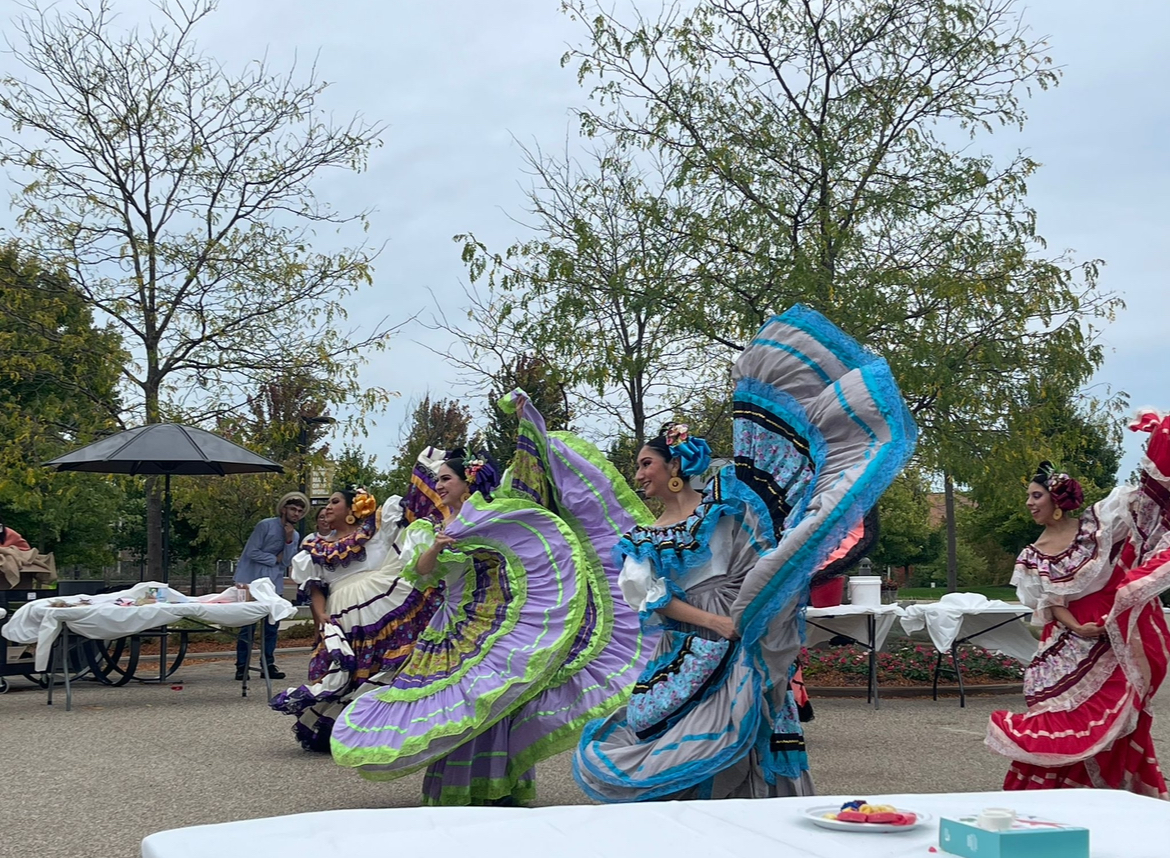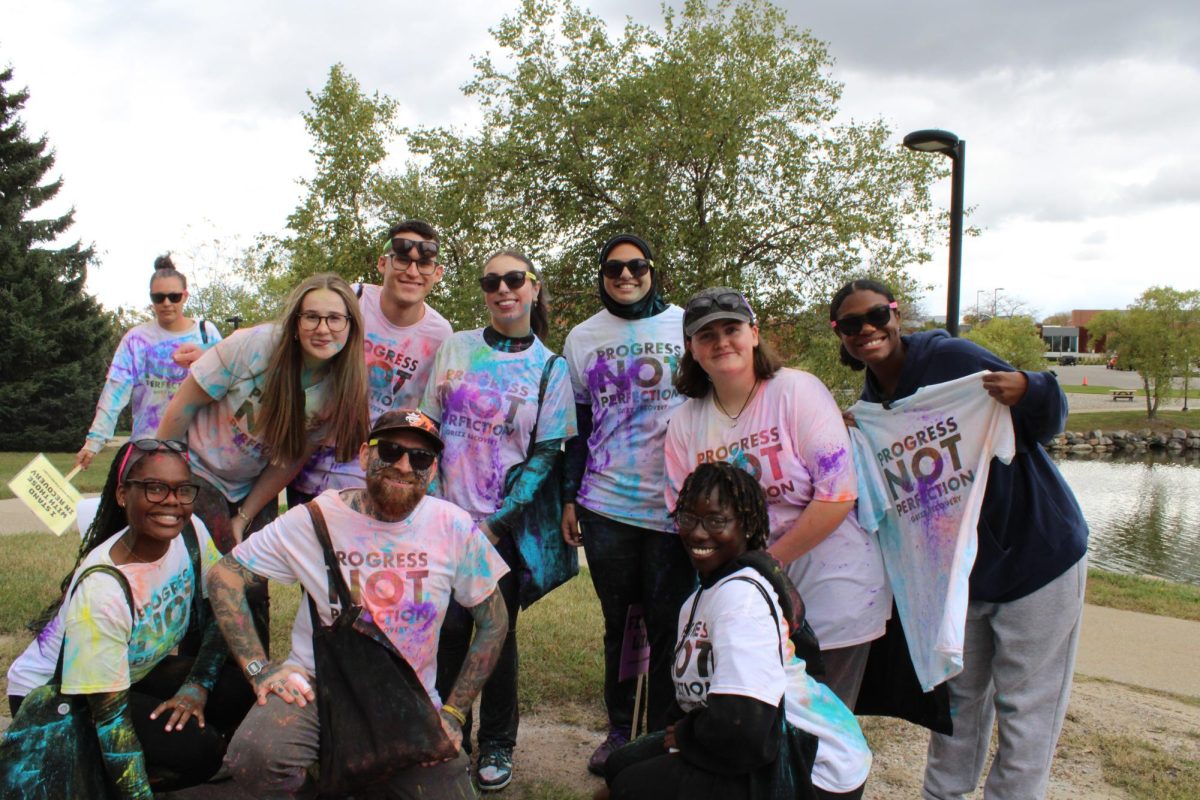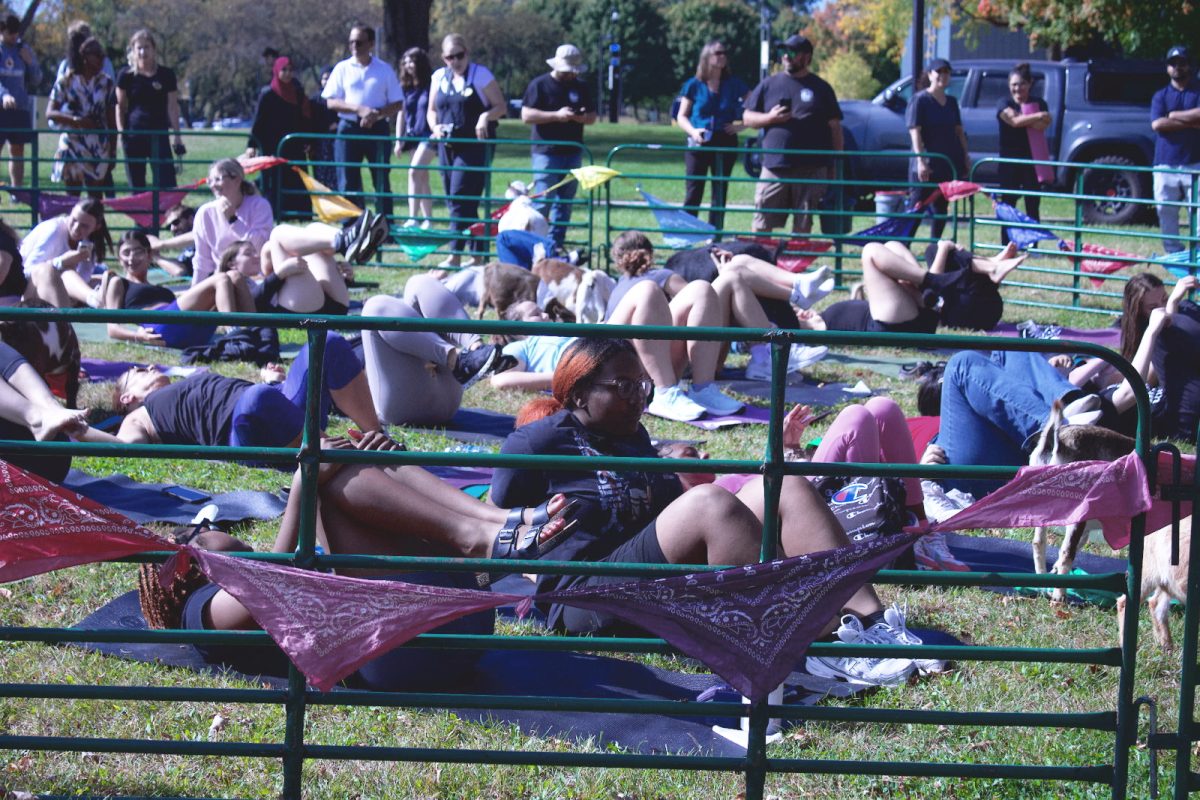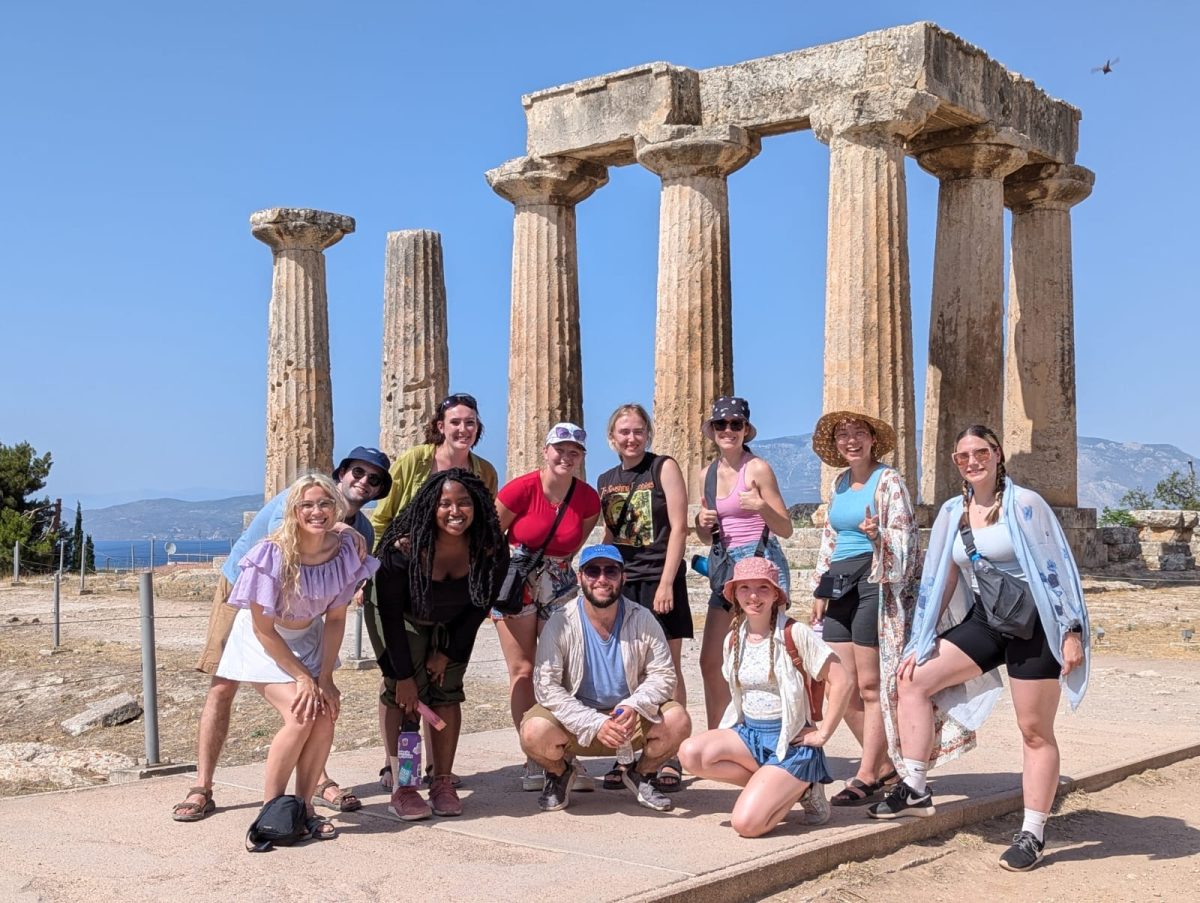El Festival del Barrio was the latest addition to the Hispanic Heritage Month roster of events that brought together various cultural experiences, music and food from Latin America to Oakland University.
Hosted on Sept. 27 by the Hispanic Aspiring Leaders Organization (HALO), the tabling event had posters, food and arts and crafts stations representing different Hispanic countries.
“People are going to come and they’re not going to sit and listen to a lecture that we give on different countries,” Josh Newberg, president of Sigma Delta Pi, said. “They want to come and actually see the culture, hear about it and do activities related to the culture. It is through those activities when they’re actually learning.”
Mexico brought in emblematic candies like Duvalin and Pulparindo, also crafting baleros, a national toy. Panama’s table featured an infographic poster and Mola coloring books to represent the Indigenous traditions of the Guna people.
“It was pretty fun, people were enjoying the music and everything, so I think it went pretty well,” Antonio Beltran, a computer science major, said. “People were helping each other, which was really cool and we got to meet people from around the world, so you learn new things and it’s just a great way to meet new friends.”
The Dominican Republic table crafted Muñecas Limé, Dominican faceless dolls, while rain sticks were built out of recycled materials at the Chile table.
“One of the challenges, a big one, was that the event was held outside,” Jenna DeVoogd, president of HALO, said. “So, you kind of tend to keep our fingers crossed that it wouldn’t rain or anything.”
With a small chance of rain, the Milagro Folkloric Ballet Company and the Wayne State University Folkloric Ballet Group took center stage at Elliott Tower to showcase traditional Mexican dances and instruct attendees on the “zapateado” dancing style.
“It really brings attention to the minority on campus, which is Hispanics,” DeVoogd said. “There’s not a lot of Hispanic organizations either, there’s only a couple, so showcases like this really give people a sense of community.”
Peruvian ceviche and pan dulce — varied baked sweets — were also brought to the event after the dancing showcase. Newberg explained that complications with food were part of the learning process involved with hosting new and ambitious events.
“This is the first time we’ve ever done this, and it was kind of hard figuring out where to go and how to even get started,” Newberg said. “We had a few meetings to plan out what we actually wanted to do — food, dancing showcase, tabling — and then we had to fill out forms and ask for help.”
The small festival was co-hosted by the Spanish Club and the Center for Multicultural Initiatives, organizations that helped with coordination and tabling.
“I came here just to check it out and ended up helping on the Mexico table,” Beltran said. “It was pretty fun to see people helping out because of the wind. It worked out nicely at the end.”
Ecuador, Spain, Argentina, Honduras and El Salvador were the remaining countries featured in the festival with plans of growing in future years.
DeVoogd concluded the event highlighting the importance of representation on campus.
“[The festival] shows the community that we do see you, we know you guys are on campus and we just want to have events and activities that represent,” DeVoogd said. “We hope that we did that with this — showed [them] that people do care and that representation is important.”







